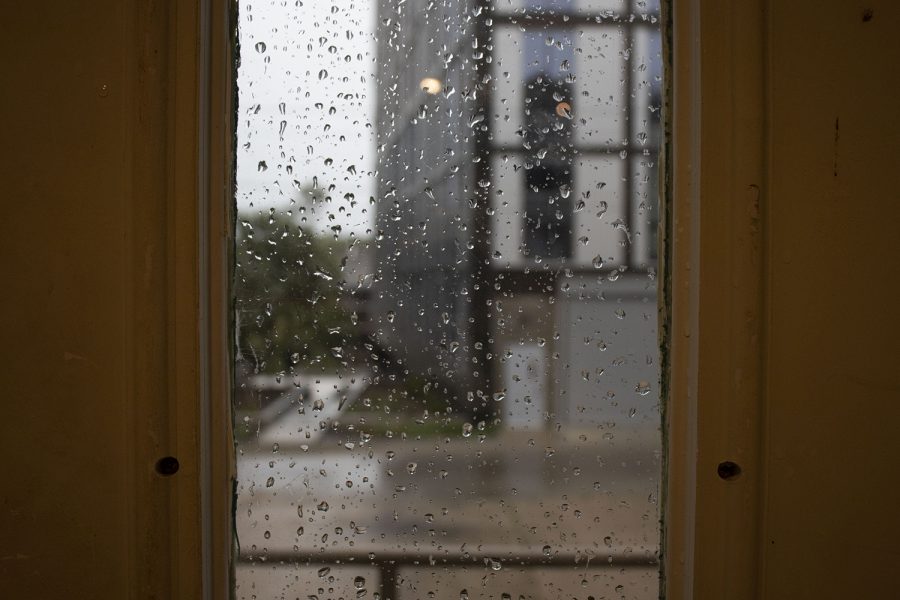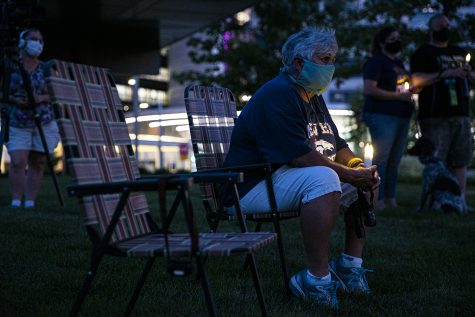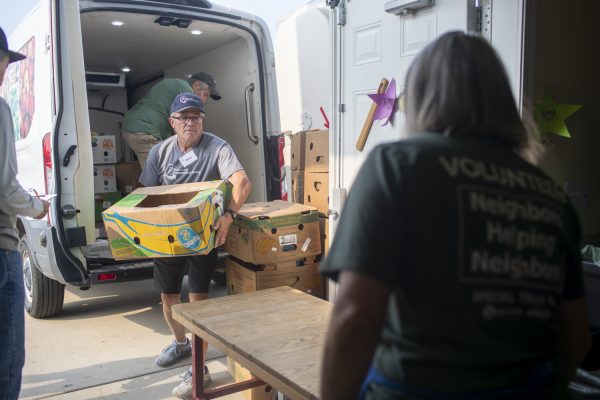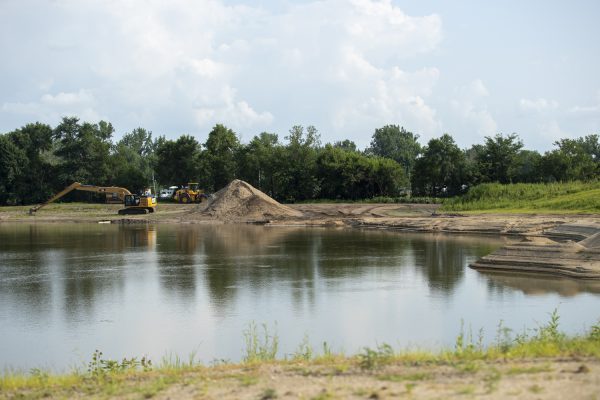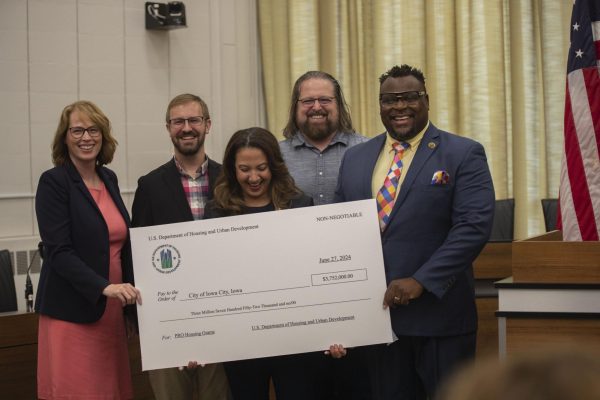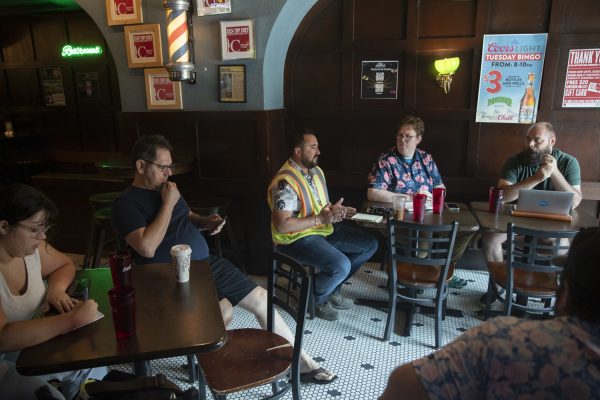UIHC studies how to combat mental health struggles after derecho, amidst COVID-19
UIHC psychologists shed light on the impact the derecho can potentially have on community members, as well as warning signs and what to do if someone is struggling.
Rain is seen through a window on Monday, Aug. 10, 2020. With wind gusts around 80 mph, the derecho –a widespread wind damage event produced by severe thunderstorms– hit Iowa City in the afternoon causing tree damage and power outages.
August 26, 2020
In the aftermath of the historic derecho that swept through Iowa, many may experience increased struggles with their mental health — especially during COVID-19, where social distance isolation from loved ones can exacerbate issues.
The Aug. 10 “inland hurricane” left thousands without power for days, demolished millions of acres of cropland, and damaged homes after 100 mph winds rocked the Hawkeye State.
Natural disasters can greatly impact mental health and — when normal social patterns are disrupted the way they have been this year — dealing with such events can be difficult, according to University of Iowa Hospitals and Clinics psychologists.
Director of Psychology at UIHC Laura Fuller offered insight into warning signs of diminished mental well-being. Any change in behavior, whether it be aggression, restlessness, or agitation, can signify a problem she said.
RELATED: UIHC warns against monoxide poisoning after derecho; 3,200 in Johnson County still without power
Fuller added that any strong feelings of hopelessness or changes in daily patterns, such as sleeping, can be a sign of a mental-health issue.
When left unchecked, deteriorating mental health can affect physical health, as well. Stacey Pawlak, director of women’s wellness and counseling service at UIHC, said physical symptoms are significant indicators of someone who is struggling.
“[When people] can’t eat, can’t sleep; they get panicky,” Pawlak said. “They have headaches and stomachaches and all kinds of physical manifestations. Just looking out for those sorts of symptoms where you just don’t feel like yourself and others are noticing too.”
Learning how to recognize these behaviors is essential to helping people recover from traumatic experiences such as the derecho. Amanda Berns of the UIHC Center for Disabilities and Development said the ongoing pandemic can impact the recovery process of people struggling with their mental health.
“One thing you can use to cope with [trauma] and increase your resiliency, or your recovery from that traumatic event, is to engage in the interpersonal relationships that you have in your social support,” she said. “If we are not able to gauge in the ways that we have gotten support in the past, then that is definitely going to impact that as a tool for us.”
Berns said people have experienced significant changes in routine since the onset of COVID-19, as well as an absence of normal socialization and interaction with others. When an event such as a natural disaster is added to the mix, it can become much harder to push through day-to-day life, she said.
“It brought out a lot of good in people, but it also seems to really be sapping people’s energy and their bandwidth for coping,” Fuller said. “[From] my perspective, it’s taking an extra toll on people, especially the people who were already struggling, but also on people who were doing okay. They may be feeling more fragile or stretched thin.”
Pawlak added that seeking treatment or therapy can help when coping with these feelings. Finding ways to destress can also ease any depressive or anxious feelings, including the importance of positive self-talk.
“I’m still breathing, my loved ones are OK,” she said. “I’m not sure where I’m going to be in a week or even a month from now, but right now I am OK.”



